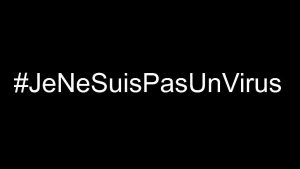
We already talked a lot about the potential harms of digital technologies and how these factors impact populations, humanitarian actions, volunteers, and the field of development itself. The dissemination of (false) information is another element of the ICT debate. While news has the potential to reach everyone, one way or another, its implications on different communities are varied. In the current COVID-19 outbreak, the lack of appropriate risk communication and community engagement fail to counter social stigma and could reinforce health inequalities.






